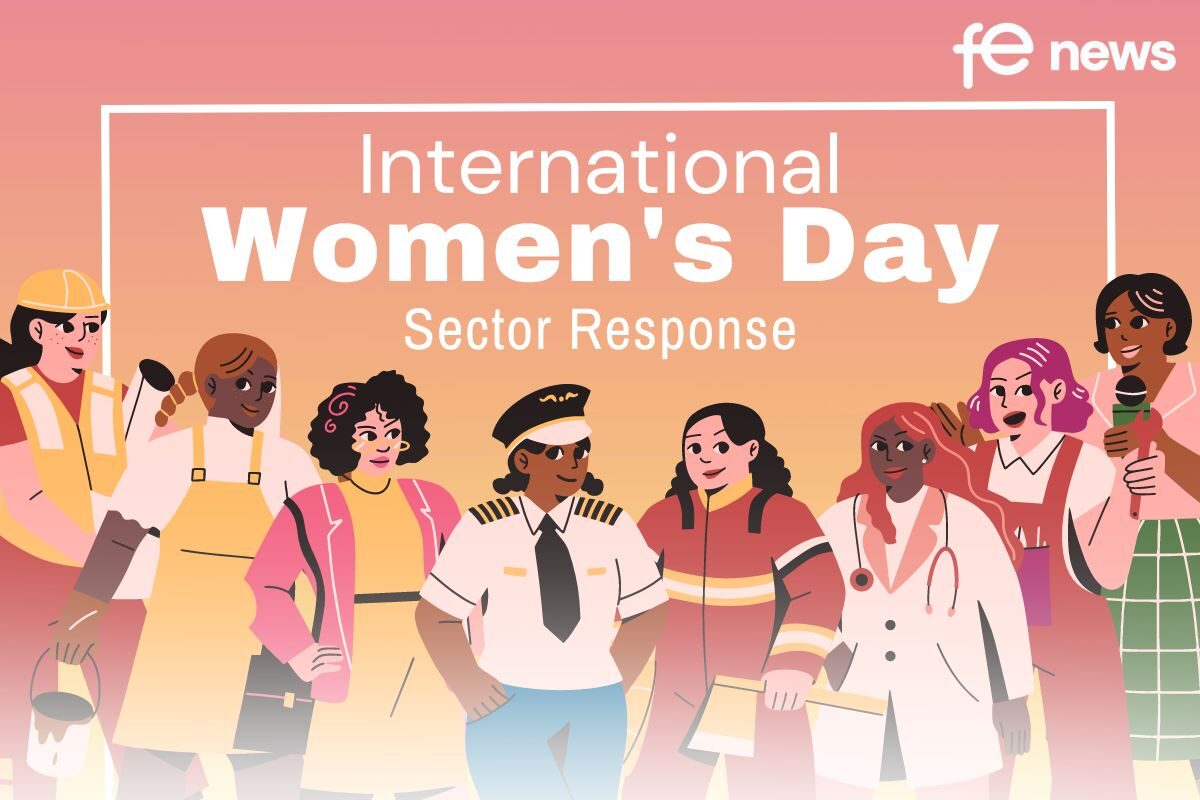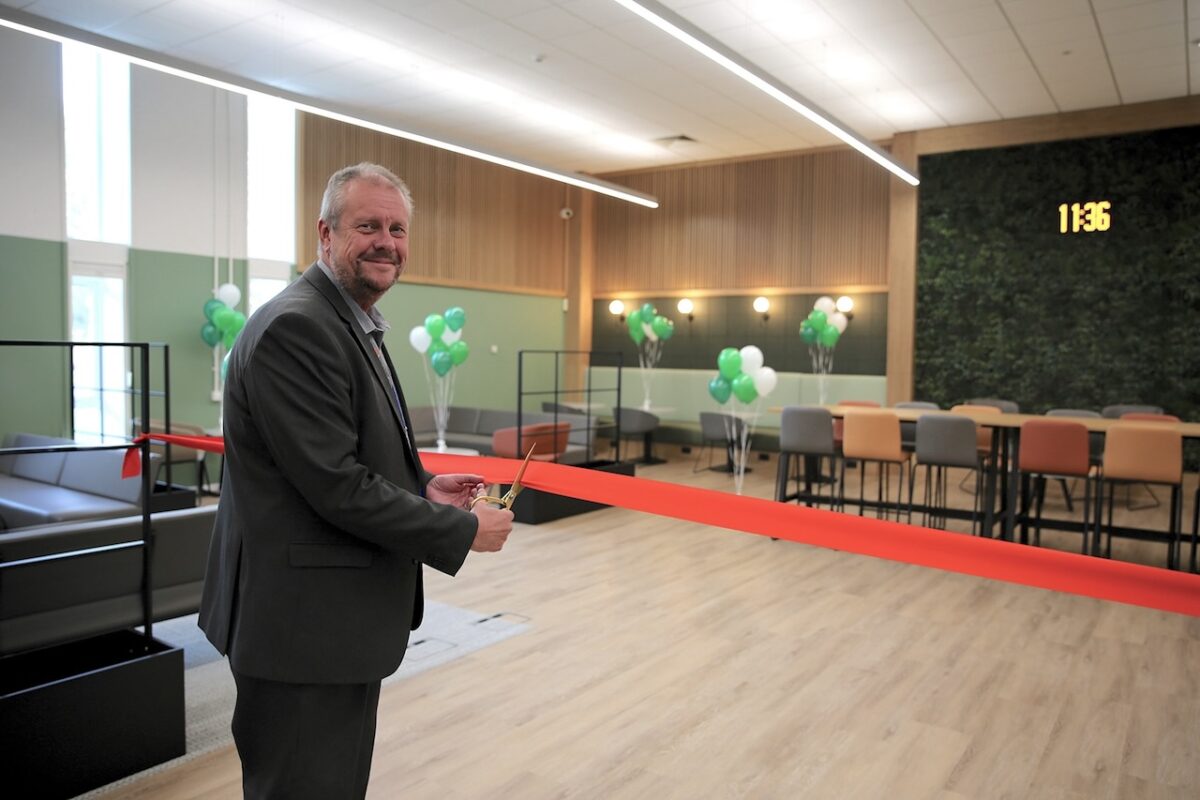International Women’s Day: Sector Response

Imagine a gender equal world. A world free of bias, stereotypes, and discrimination. A world that’s diverse, equitable, and inclusive. A world where difference is valued and celebrated.
Today (8th March) is International Women’s Day, this year the theme is #EmbraceEquity.
Celebrate women’s achievement. Raise awareness about discrimination. Take action to drive gender parity.
IWD belongs to everyone, everywhere. Inclusion means all IWD action is valid.
Sector Response
Nadine Pichelot, Senior Vice President, Finance at Anaplan:
‘Female representation in business has seen positive change over the years, but we still have a long way to go. Both the financial services and technology sectors are still heavily male-dominated, and we only saw a nominal 5% increase of female C-suite executives in corporate business environments between 2016 and 2021.
‘As a first step, action needs to be taken to attract women to these sectors. Equality starts with representation, so to challenge current norms, we must showcase the impressive role women are playing in the business world, especially at the top of an organisation. For instance, female business leaders can visit schools to talk about their careers and their experiences – from what they studied to how they’ve navigated adversity. If young women see examples of female business leaders, they will feel more confident in their own ability to reach those types of leadership positions.
‘As well as encouraging young women to pursue leadership opportunities when they grow up, we also must support women in the workplace today, to instil confidence in their abilities and skills and help open the door to new opportunities. Women are commonly seen struggling with imposter syndrome in the workplace, partly due to the lack of representation, and partly because of the enduring feeling of inferiority. Having an internal mentoring programme can be extremely helpful in this respect.
‘I’m honoured to be leading such a scheme at Anaplan, as a way to connect with and empower women looking to develop their skills and knowledge within the organisation. This is the kind of mutual support and allyship women need to fight enduring stigma and achieve equality. I am confident that the best way to succeed is by lifting others up. This is the key to collaboration and unlocking a more equal, respectful, empathetic world.’
Lorna Crowley, Chief Marketing Officer at Winningtemp said:
“This year’s International Women’s Day campaign, #EmbraceEquity, is all about actively embracing equity and challenging gender stereotypes and discrimination. From remediating gender pay gaps to tackling imposter syndrome, supporting women in the workplace involves giving us a voice to share our ideas on how we can promote a culture of feedback which leads to a safe space to express concerns and ambitions.
With the help of AI-enabled HR tech tools, HR leaders and line managers can use people data to better understand and acknowledge any barriers that women face in the workplace. It also helps with ensuring that all the people management practices are consistently fair and inclusive. Any form of discrimination or harassment should not be tolerated, as it will not just impact the organisation legally but also will have detrimental impact on employee morale and retention. Companies that fail to treat complaints around harassment or bullying are more likely to lose out on valuable talent in the long run. To tackle this, Winningtemp developed a whistleblowing functionality to ensure that everyone can anonymously speak their minds about sensitive matters, and which provides a way for all employees to report wrongdoing.
Even whilst implementing various DE&I initiatives in the workplace, HR should focus on meaningfully measuring the outcomes of these programmes and not just the outputs. This means going beyond the hiring stage of recruiting people from diverse backgrounds to creating a safe and comfortable workplace for all employees, including women, to further grow and advance in their career, no matter their background. This in the long run also improves employee retention rates, as workers are more likely to feel appreciated and valued within the organisation.”
Camellia Chan, CEO and Founder at X-PHY, a Flexxon brand
“International Women’s Day shines a crucial spotlight on the inspiring work women are doing across the world. Equally important is its role in highlighting existing challenges, focusing much-needed attention on the steps needed to achieve gender equality.
In traditionally male-dominated STEM sectors such as cybersecurity, significant progress has been made in recent years. But it doesn’t stop there. To continue this upward trend, legislators and businesses must take positive measures to widen accessibility and participation, such as through training, education, and support systems.
Embracing D&I initiatives and investing in education and training can provide women with the tools they need to empower themselves, meeting the tech talent gap head on. Indeed, it’s important that business leaders make the best decisions to recruit and then retain diverse talent. That’s why my co-founder May and I created our internal ‘Flexxon Innovation Lab’ – to encourage open innovation, cooperation, and collaboration among employees as well as to upskill and inspire innovation in the workforce.
Businesses play a critical role in maximising diversity across all levels in the technology sector. It’s their responsibility to allocate resources towards this issue. By championing diversity, I’m optimistic about the positive changes we can achieve in the future.”
Jen Catto, CMO at Travelport
“The conversation around women in tech has definitely progressed during my career but, undoubtedly, there is always more to do. It’s important for women – and men – to champion women who are interested in technology, or are already working in the field. International Women’s Day provides a point of reflection, while shining a spotlight on the challenges faced. I’ve been fortunate to have fantastic mentors, both male and female, who’ve supported me throughout my career, and I am focused on doing the same for emerging talent.
This year’s theme is equity, and I believe we need greater encouragement for girls in STEM at the early school stage. Doing so might encourage girls to pursue careers in technology later in life. Let’s de-stigmatise women in STEM and teach all children that technology is for everyone.
The sooner we turn the tide on getting more women interested in tech professions, the sooner we will have more diverse representation at the C-suite and board level.”
Krista Griggs, Head of Financial Services & Insurance at Fujitsu
“It’s vital workplaces across the world embrace and elevate equality in the workplace. But it’s even more important for businesses to take tangible action and implement real, lasting change that has a positive impact on women within the workplace.
“We can only achieve a truly equitable society when women have the same opportunities as men; this means creating an environment where women can thrive and achieve their full potential.
“Days like International Women’s Day act as a reminder to work towards a truly level playing field. And at Fujitsu, we are committed to creating an inclusive and diverse culture, where everyone can succeed, regardless of gender, race, or background every day of the year.”
Adriana Carpenter, Chief Financial Officer at Emburse
“Clearly, the technology and finance spheres need a shake-up. Organisations must humanise the workplace through fostering environments that nurture and celebrate individual’s unique perspectives, skills and strengths.
“Remote and hybrid working models are not going anywhere, so it’s time to harness the full potential of tech to reach more women and ethnic groups, actively broadening the net to diversify talent pools and empower individuals that would not otherwise have the opportunity.
“Paired with a workforce that is aligned around the company’s work and goals, this will breed better decisions, happier employees and stronger cultures.”
Meytal Badichi, Product Design Group Lead at monday.com:
“This year’s International Women’s Day serves as a reminder for business leaders worldwide to focus on gender equity. While the gender balance in the UK technology industry has significantly improved,there is still a long path ahead of us. Despite the advancements that have taken place, women continue to be underrepresented in technology industries with a recent survey finding that only 24% of computing jobs are held by women. This demonstrates that technology is still a male-dominated field, with women feeling an underlining pressure to prove their worth in a professional setting. Over the course of the last decade, the tech industry as a whole has become more aware of the gender gap and paid more attention to gender equity. However, this increased attention has yet to translate into equal representation and compensation.
Yet, while women still require more representation across senior positions and the tech sector, the shift to the hybrid working modelmodle has made the industry more family-friendly and inclusive. This has also enabled more people with children, including women who still do much more childcare than men, to rejoin the workforce. By continuing to prioritise diversity and inclusion, the tech sector will be able to attract the best talent and create a more vibrant, innovative, and equitable industry that benefits everyone.
International Women’s Day highlights the need for continued progress towards diversity, equality, and inclusion. Diversity in all its forms—from gender to culture to age to race—inspires new ideas and fosters innovation. Often, men and women will approach business differently due to their varied life experiences. Different perspectives offer different lenses of growth and attract diverse talent. Likewise for the younger generation of women looking to enter the world of tech should not be afraid to speak their mind, and ask for what they feel they are entitled to. Business leaders should encourage a diverse workforce where everyone feels comfortable to speak their mind and feel proud of who they are.”
Sarah Solerti, Senior Tech Engineer at RM:
“As a Mum, equity is all about having the opportunity to do what I want in my home life – raising children – while being offered the same opportunities as everybody else at work. And we can’t be blind to the fact that the hurdles to achieving this are much more prominent for men than women. Historically, the lion share of childcare is placed on women, meaning they need to stay at home more than men, or it’s simply assumed they should stay at home – both of which can have a negative effect. I can say that, from experience, the technology sector in particular tends to be dominated by men – making it a really intimidating space.
“But there are things that organisations can do to combat those mental and physical blockers for women. For instance, it’s crucial that organisations offer flexibility in days and hours worked to make job roles suitable for women – or men – with children. Translating that to equity means representing the underrepresented. The topic of flexibility needs to be a constant. Women need to be as equally present in the workforce, and in senior positions too, no matter whether that makes them present in the office 9 to 5. This offers a diversity of perspectives that’s important in any business, because ultimately, the people we’re selling to, working with or for will be diverse too.
“And it’s good for general morale. When women can succeed in their careers, this boosts morale amongst women that are just starting out in their careers. They have someone to look up to and it makes the workplace feel less intimidating. And flexibility is important because we also need to make space for more female role models. As it stands, if you ask someone about some of the most impressionable keynotes from business leaders, they’ll name Bill Gates or Steve Jobs. The more we work towards greater equity and flexibility, the faster we’ll create more business and tech female inspirations for younger females to look up to – and that can only have a positive impact.”
Chanda Azam, Engineer Apprentice, BAE Systems Digital Intelligence
“I think it’s important to take a step back occasionally and educate ourselves on what we have the power to do as individuals in helping to create a safe space where diversity is celebrated, and recognising that one size does not fit all. Yes, as women we are breaking the mould of a male dominated industry. Yes, companies are starting to get better at recognising the incredible value women bring to the sector. But that’s not enough. More needs to be done in recognising the different obstacles women have overcome to progress their careers in tech, and we are the ones who should be shouting about this.
“I’ve had what some may describe as an untraditional route into tech. I began my career at BAE Systems as a DevOps Engineering Apprentice, an entry-level route traditionally associated with school or college leavers. Yet I was 32, with no real world experience in tech and a son who was just shy of his second birthday. I’ll be the first to admit that the flexible working approach that BAE Systems offers has been the backbone in allowing me to work full time through my apprenticeship whilst juggling childcare. Some of my peers are able to work the standard 9 to 5 hours, whilst I am not. And that’s okay.
“Equality has meant that I have been fortunate enough to have a second chance, and start a career I love. Equity has meant that I have been able to stay in, and progress in a career I love. I’m so grateful for the opportunities I’ve had since starting my apprenticeship, and I would love to play a part in creating the same opportunities for future generations of women, by #EmbracingEquity.”
Dr Kathryn O’Donnell, Chief Operating Officer, In Space Missions Ltd
“To me, #EmbraceEquity means implementing working approaches that allow suitably motivated and qualified people to have comparable opportunities to achieve goals irrespective of their personal characteristics and circumstances. Looking back on my career so far, I can think of two key aspects that would have been helpful.
“First, greater recognition of the need for flexible working. Thankfully, this is far more common nowadays, though it is still frequent for regular senior level meetings to be scheduled at times difficult for working parents (early/late). This disproportionately affects women’s ability to take part, so there are still some improvements to be made!
“Second, as a woman in engineering, I would have found it greatly beneficial if senior leaders were coached to recognise leadership/management styles other than their own. Working in a male dominated environment meant leadership styles rooted lacked empathy, and other traits that women are socialised to develop, were only appreciated by a minority which was frustrating.
“With this all in mind, we have done a lot of work to try to ensure our working practices are as flexible as possible to embrace a variety of lifestyles. As a result, we have had great success in tempting highly qualified women back to work from career breaks (usually due to family commitments). In a recent UN Space4Women survey we punched well above our weight with the working practices we’d embedded to #EmbraceEquity from a gender perspective, which is something we’re proud of and hope to continue to improve on.
Laura Butler, Software Engineer, BAE Systems Digital Intelligence
Code First Girls start: May 2022
Joined BAE Systems: September 2022
“Prior to joining BAE I worked as a Marketing Manager for a national charity. I graduated from the University of Essex with a BA (Hons) in History in 2011 and pursued a 10 year career in marketing and communications in the education and charity sector. Throughout my marketing career I was involved in a number of website redesigns and digital system transformations which I thoroughly enjoyed. The opportunity to re-skill and train in Software Engineering through the Code First Girls bootcamp enabled me to continue working full time and re-train in the evenings and weekends.
“The Code First Girls Software Engineering bootcamp was really interesting, I learnt new software languages and worked collaboratively with others on the bootcamp to produce a working app at the end of the course. Building a functioning app at the end of the course felt like a real achievement and something I’m really proud of.
“My advice to anyone wanting to pursue a STEM career is go for it! You don’t need to be good at maths, you just need drive, passion and an inquisitive mind to succeed!”
Jem Brown MIET, UK NS Engineering Lead, BAE Systems Digital Intelligence
“Over recent years we have looked for ways to increase the diversity of our software engineering teams using different recruitment routes to bring in junior talent into BAE Systems. In 2022 we were excited to become a partner employer of Code First Girls and to employ 15 of their graduates from the CFGdegree Full-stack course. Our new joiners have technical aptitude and enthusiasm in abundance and come from diverse backgrounds and with varied experiences of working outside the tech sector.
“As a company we pride ourselves on helping our customers solve some of their hardest problems and, in an increasingly complex world, we know that diverse thinking is a key component in the development of successful solutions. Code First Girls is helping us ensure diversity is an integral attribute of our engineering workforce.”











Responses